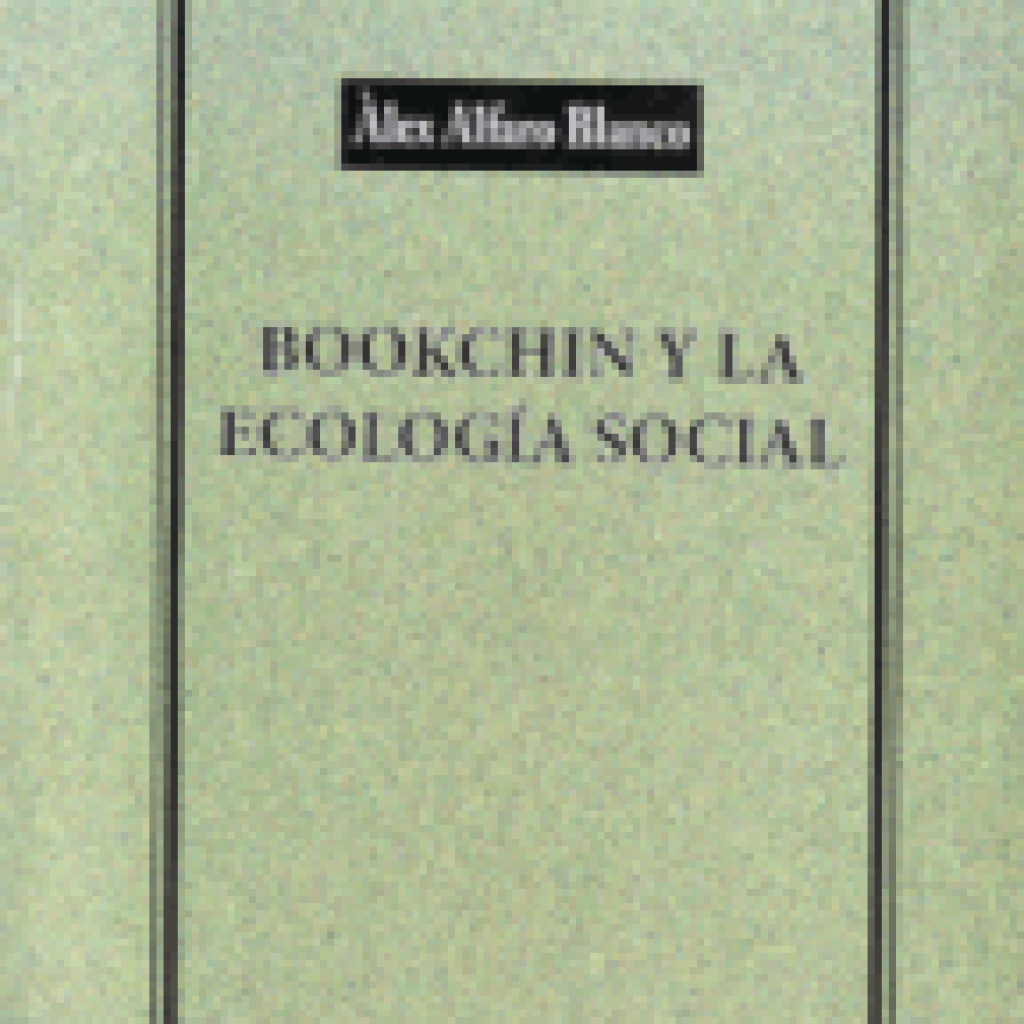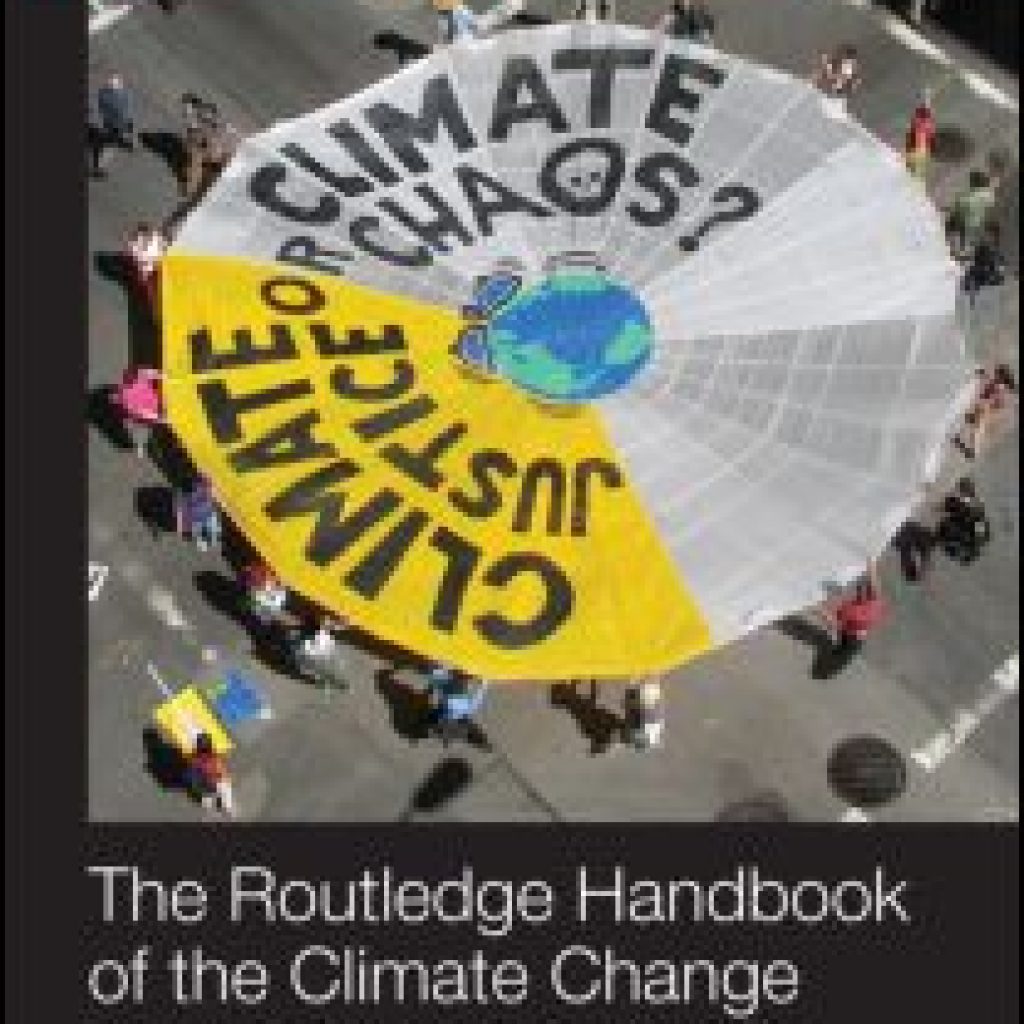New book: Between Occultism and Nazism

From long-time ISE faculty member, Peter Staudenmeier, now a professor at Marquette University: Between Occultism and Nazism: Anthroposophy and the Politics of Race in the Fascist Era The relationship between Nazism and occultism has been an object of fascination and speculation for decades. Peter Staudenmaier’s Between Occultism and Nazism provides a detailed historical examination centered […]
Bookchin pages on libcom.org
A colleague at the University of Vermont has drawn our attention to a series of about 20 posts on libcom.org of articles, pamphlets, book excerpts, and commentaries by and about Murray Bookchin. It includes some fairly rare materials, and is definitely worth a look. See http://libcom.org/tags/murray-bookchin.
New social ecology book from Barcelona

We have received an email informing us of a new book in Spanish, titled Bookchin y la Ecología Social, published by Libélula Verde in Barcelona. Their description, roughly translated says: The publication brings us Social Ecology, from the hand of the US thinker, Murray Bookchin. Given the many challenges of today’s society, this book is […]
Peter Staudenmaier: What is Capitalism?
From long-time ISE faculty member, Peter Staudenmeier, written for the Lexicon pamphlet series sponsored by the Institute for Anarchist Studies. This was originally posted in March 2014 and revised in August 2015: In ancient myths of paradise, people lived in boundless plenty without work or want. The fruits of the earth were freely available to […]
On Wall St. and Organizing Nature
A provocative interview published in 2011 in the Toronto-based journal Upping the Anti offers a fresh outlook on key questions of society and nature, and offers important resonances with Murray Bookchin’s writings. The piece addresses how societies define ecological relationships, and touches on issues of technology, productivity, commodification, and the accumulation of capital. The interviewee, […]
Recent articles (Winter 2014)
2 recent posts to the ISE Blog contain links to new articles of mine that are featured elsewhere:
Myths of Green Capitalism
Dave Van Ronk vs. “Llewyn Davis”
I also have an extended essay and 2 short pieces in the book described here:
New international handbook of the climate change movement
And a chapter in this book, edited by Jeffrey St. Clair and Joshua Frank of Counterpunch:
Hopeless: Barack Obama and the Politics of Illusion
As well as this recent book from Food First, based in Oakland:
Food Movements Unite! Strategies to Transform Our Food Systems
Brian Tokar: Myths of Green Capitalism
An article from the Winter 2014 issue of the journal New Politics, based on a presentation at the 2013 Left Forum in New York City. Tokar examines the political and ideological origins of “market-oriented” approaches that aim to substitute permit-trading regimes for environmental regulation: The theoretical origins of carbon trading go back to the early 1960s, […]
Direct democracy in Ukraine?
From a recent blog post by our colleague Adrian Ivakhiv, a professor of environmental studies at the University of Vermont. His blog on the ongoing events in Ukraine is called UKR-TAZ: A Ukrainian Temporary Autonomous Zone: Analyzing the Maidan & Its Aftermath: [T]he Maidan [Arabic for a public square] movement has shown a tremendous degree […]
Brian Tokar on Dave Van Ronk vs. “Llewyn Davis”
For a change of pace from our usual entries, here’s a commentary just posted on Counterpunch by Brian Tokar. The original title was “Dave Van Ronk’s story is much better than Llewyn Davis’ – and a lot more fun,” and Counterpunch shortened it to “The Real Van Ronk.” Tokar compares the acclaimed Coen Brothers’ film, […]
New international handbook of the climate change movement

Several contributions by ISE faculty member Brian Tokar are featured in the brand new Routledge Handbook of the Climate Change Movement. Tokar’s chapters include an in-depth review of the emergence of climate justice as a movement-building paradigm, along with several organizational profiles. Edited by 2 professors from the University of Bremen in Germany, the Handbook […]
